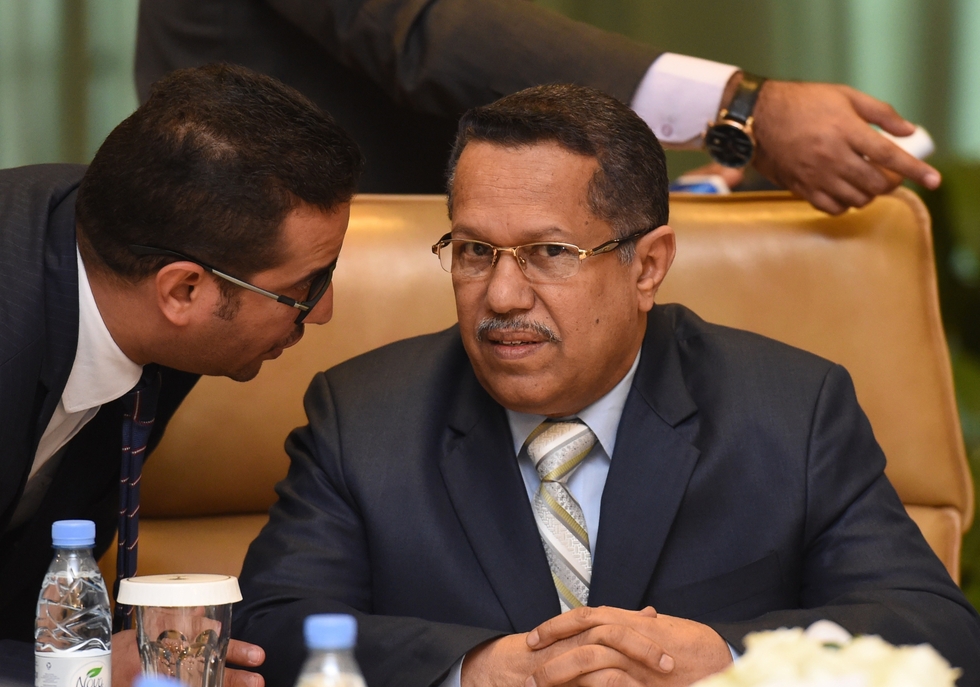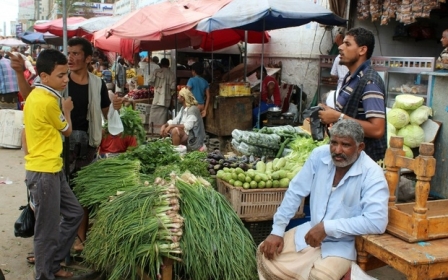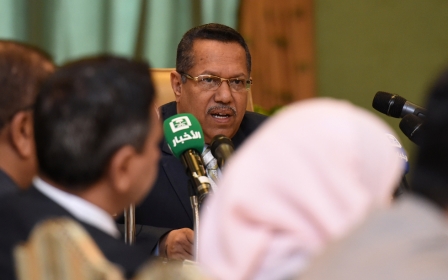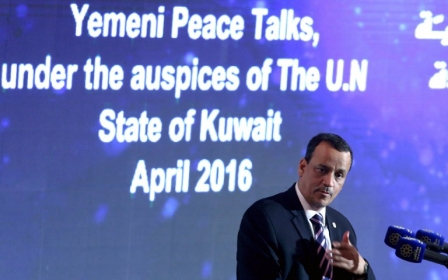Yemen govt to end peace talks boycott: UN
Yemen's foreign minister says the government will give peace talks with the Houthis a 'last chance' in Kuwait

Yemeni Prime Minister Ahmed bin Dagher (R) listens to his aide during a cabinet meeting (AFP)
Published date: Dimanche 22 mai 2016 - 10:49
|
Last update: 8 années 6 mois ago
The Yemeni government delegation is to rejoin UN-brokered peace talks in Kuwait with Houthi rebels who control Yemen's capital, ending a four-day boycott, the UN special envoy said Sunday.
The hard-won negotiations on ending a conflict that has killed more than 6,400 people and driven 2.8 million from their homes since March last year have been interrupted by repeated boycotts by the government delegation since they opened on 21 April.
UN envoy Ismail Ould Cheikh Ahmed said that President Abd Rabbuh Mansour Hadi had agreed to end the latest boycott after mediation by UN chief Ban Ki-moon and Qatari emir Sheikh Tamim bin Hamad Al-Thani.
Hadi's supporters had baulked at discussing rebel proposals for a unity government that they fear will sideline him and undermine his claim to international legitimacy.
They insist that the talks should focus instead on enforcing an April 2015 UN Security Council resolution demanding that the rebels withdraw from the capital and other territories they have overrun since 2014.
Foreign Minister Abdulmalek al-Mikhlafi said on Twitter that the government had agreed to give the peace talks a "last chance".
"We have fixed all the references. This is a first step on the path for a real peace that leads to implementing Resolution 2216 beginning with withdrawals, surrender of weapons and the restoration of state institutions," he said.
Despite a 14-month-old Saudi-led military intervention in support of Hadi's government, the rebels and their allies still control many of Yemen's most populous regions, including the central and northern highlands and the Red Sea coast.
Middle East Eye propose une couverture et une analyse indépendantes et incomparables du Moyen-Orient, de l’Afrique du Nord et d’autres régions du monde. Pour en savoir plus sur la reprise de ce contenu et les frais qui s’appliquent, veuillez remplir ce formulaire [en anglais]. Pour en savoir plus sur MEE, cliquez ici [en anglais].




